How soon can admission be arranged?
Generally, as soon as you or your loved one desires. Our process generally takes no more than a few days. To admit, please call our intake and admissions clinicians at (844) 250-8532.
Prior to admission, you will need to provide the following by fax or in person to an Admissions Clinician:
- Complete an admissions evaluation with us. Our intake assessments are free of charge. We will review your current concerns and struggles as well as past treatments, goals, and psychiatric history. This interview takes about one hour and will also give you an opportunity to decide if McCallum Place fits your needs. For adolescents we would like to complete and assessment with a parent or guardian as well as the child.
- You will also need to complete the following medical tests within seven days of admission: blood work , including: Complete Blood Count (CBC), Complete Metabolic Panel (CMP), magnesium phosphorus, and a pregnancy test (if you are a female client of childbearing age; urinalysis; TB test if not done in the previous year).
- A complete physical exam and medical history. Simply download and print off the form below and take to your physician. This physical exam should include a morning weight in gown, height, and postural vital signs. Please fax results to McCallum Place intake team at 314-552-7438.
- Regarding Allergies: Please provide documentation of any known food and/or medication allergies should we need to prepare prior to admission.
- A Hepatitis A shot is recommended for those considering our transition apartments (St. Louis only).
- Adolescents: Obtain growth charts from your pediatrician and fax to us or bring upon admission.
Click below to download the Medical/History and Physical Form:
Download Medical Form in Adobe PDF Format
What is the typical length of stay at McCallum Place?
Clients stay an average of six weeks. Length of stay is determined based on client need and medical necessity and is graduated according to his or her progress. Level of care is assessed throughout the week and adjusted accordingly if needed. Schedule your intake assessment today to learn more.
How are treatment decisions made?
The treatment team consisting of the psychiatrist, individual therapist and dietitian meets regularly to evaluate each individuals progress. They work with the client and family to evaluate progress towards treatment goals. Treatment recommendations are based on one’s ability to be successful in achieving their treatment targets. Goals are revised as needed to encourage and support continued progress.
As a loved one or family member, how frequently will I hear an update?
Updates are provided to parents based on having a Release of Information on file for adult clients. For minor clients, we provide updates to family members who have legal guardianship and/or for whom we have an ROI on file. In addition, family programs are intended to support you and your loved one in treatment.
Will children & adolescents be accepted for treatment?
Yes! We have a special adolescent program with separate partial hospital therapy suite and residential quarters, as well as certified teachers to keep our adolescents on track with school. Adolescent programming is modified to address their special developmental needs with a focus on family treatment. Adolescents who require intensive seven-day-a-week treatment may stay in our residential house or with their families.
Are there tutors to help with my school work?
Yes! Adolescents in Residential or PHP programming are provided with individual tutoring by licensed teachers 13 hours per week. There is no additional charge for this service.
How are weight goals determined?
Weight goals are set by our experienced team of registered dietitians and physicians. Target weights and ranges are not an exact science and each client will have a healthy weight range that is unique to their biology and their development. Additionally, growth charts are reviewed when establishing weight goals for adolescents and young adults.
How does the McCallum Place staff work with frequent purging?
The small number of clients allows for customized support and close supervision during the hours after eating. We take into account metabolism changes associated with purging so that nutritional restoration is gradual and safe.
Can McCallum Place accommodate a vegetarian diet?
Yes, we can accommodate a vegetarian diet and most physician-diagnosed food allergies. However, we cannot accommodate a vegan diet.
Am I allowed to go to school/keep my job while in treatment?
Yes, when appropriate. Initially, most people take a leave of absence from school or work for anywhere from two weeks to two months to stabilize. During the transition we encourage you to return to school or work.
Can I maintain contact with family and friends?
Yes! We do not discourage contact with family and friends but require that contact occur outside of scheduled program events during visiting hours. Passes are granted as clients’ goals are met. Regular passes outside the facility are offered to those in the recovery phase of treatment.
Will I be allowed to exercise?
Our overall goal of the fitness component of treatment is to offer our clients the opportunity to gain awareness and challenge unbalanced exercise behaviors through supported and balanced fitness sessions with our trained movement and fitness specialist. Research suggests, and our experiences support, movement that is nutritionally supported is beneficial to recovery and can be thoughtfully integrated into treatment. A commitment to recovery and a willingness to cultivate a more wholesome relationship with exercise are both foundations upon which fitness can be appropriately incorporated during treatment. When medically stable, nutritionally compliant, and clinically appropriate, you will be eligible to participate in yoga, fitness outings, daily walks, and authentic movement groups. Your treatment team and our movement and fitness specialist will work with you to create an individualized fitness plan during and after treatment.
What can and should I bring?
You should bring comfortable clothing, suitable for participating in active groups, such as yoga. Bring weather-sensitive clothing for outdoor activities. We encourage you to bring comfort items such as photographs or a favorite pillow. Please do not bring items of value or large amounts of cash. Cell phones and laptops are permitted but may only be used during specified hours.
Is there anything I am not allowed to bring?
You will not be allowed to bring food or drink of any kind, diet pills, laxatives, non-approved vitamins, or weapons. Because certain magazines can trigger negative thoughts, they are prohibited as well. Additionally, clothing advertising alcohol or drugs is prohibited.
Is smoking permitted?
McCallum Place is a smoke free center. We can offer other nicotine substitutes.
What if I need hospitalization, intravenous feedings, or tube feedings?
We avoid hospitalization and IVs unless absolutely necessary.
Our medical team can place and maintain tube feedings on site for our clients. Tube feedings can be a helpful transition to reduce anxiety associated with eating full calories for weight gain.
Tube feeding is sometimes offered when the volume of food offered or anxiety related to eating is overwhelming. Tube Feeding is necessary when clients cannot eat enough to reverse effects of malnutrition. When tube feeding is necessary, we are equipped and qualified to place the tube onsite, making this process easy and convenient for the client. Our highly trained nursing staff administer and monitor tube feeding for clients that require it.
If more intense medical care becomes necessary, you will be transported to a nearby hospital until you are stable enough to return to McCallum Place. Our psychiatrists will continue to work with you while you are at the hospital and will coordinate care with other physicians.
Who is a candidate for treatment?
McCallum Place offers intensive outpatient, six and ten hour partial hospital, and residential care. Our programs may be an excellent option for clients with a variety of needs and concerns. We provide a high level of structure and support around mealtimes to help clients overcome food fears, reshape beliefs, and learn how to nourish oneself in a sustainable way. This support is helpful for those who have been struggling to establish a healthy weight in outpatient settings. Clients with anorexia benefit from the structured program which provides necessary support for weight restoration. Clients with binge eating and purging may need the structure of partial hospital to shift from a cycle of frequent eating disorder behaviors to actively working on changing their relationship with food. We provide a high level of psychiatric and medical monitoring on site which allows us to accommodate very low weight clients, clients needing tube feeding and clients with severe anxiety and food avoidance. In residential care, we can accommodate most clients who are able to commit to treatment and are not below 70% ideal body weight.
All meals are structured and closely monitored. Clients who are at risk of purging are supervised after the meal. Our meal groups allow clients an opportunity to commit to a regular strategy of eating and build continuity over the course of several meals, a benefit that often cannot be achieved in outpatient therapy. Meals are an opportunity for the exposures necessary to reduce mealtime anxiety. Our goal is to increase flexibility and restore balanced nutrition.
Our experienced intake staff will determine the most appropriate level of care for your clients. We understand that treatment is a big financial commitment. We contract with many insurance companies and will work with clients to help them access out of network benefits when appropriate. Whichever level of support needed, our evidenced based therapies help clients develop the skills and tools they need to face their fears and commit to change.
Will insurance pay for any of the treatments?
McCallum Place is an in network provider for many types of Anthem Blue Cross, Aetna Health Plans, Mercy, Cigna, Health Alliance, United Behavioral Health, United Health Care, Humana, and MHNet. Even if you do not have a policy with one of these insurance companies, we will investigate your plan to determine to what extent you can utilize benefits. We recommend the client also consult with his/her insurance company to see if treatment at McCallum Place will be covered under the individual policy and regarding prepays or coinsurance. We also gladly do this! Call our admissions department at 800-828-8158 now to help.
McCallum Place is not licensed as a Medicare or Medicaid provider.
For those clients who are out-of-network, some or all of the cost of treatment may still be covered by your insurance company. If out of network, McCallum Place will submit claims on your behalf to your insurance company so that you may receive reimbursement from your insurance company up to the limits of your insurance coverage.
We always attempt to pre-certify treatment with your insurance company. Almost all of our clients receive some level of reimbursement from their insurance however, this reimbursement varies widely by company and coverage type. It is a good idea to consult the insurance company directly prior to admission to determine what level of insurance reimbursement you can expect.
Note: We find families that advocate for themselves with insurance companies have the best success. This is why we strongly recommend you get involved alongside us during this process. We will do everything in our power to help you access your benefits to support your treatment.
.
Can I maintain contact with my client/patient?
Yes! Our goal is to keep you part of the treatment team and support intensive aftercare which will be important to protect recovery. We encourage you to continue contact with your client/patient during their stay at McCallum Place. With consent, we will keep you informed of progress, including information about treatment goals and a summary of treatment upon discharge.
Will I be consulted in the goals of treatment?
Yes! We value your input as we set treatment goals and we believe collaboration is an important part of helping clients achieve recovery.
Will I receive discharge information?
Yes! All clients develop a discharge plan during their stay. This plan is developed by the client/patient with the support of their primary therapist and feedback from other clients/patients in the program. It addresses goals for continued treatment and strategies for relapse prevention. In addition, we prepare a summary of treatment to acknowledge achievements made during the stay and identify concerns for continued work outside of McCallum Place. This will be mailed to after your patient/client is discharged with client consent. If you have any questions regarding discharge planning, please contact your therapist.
















